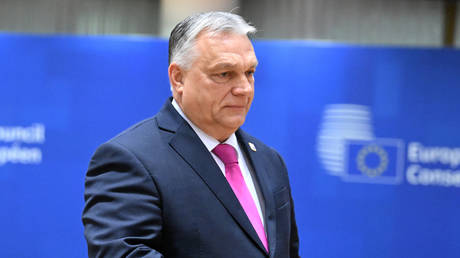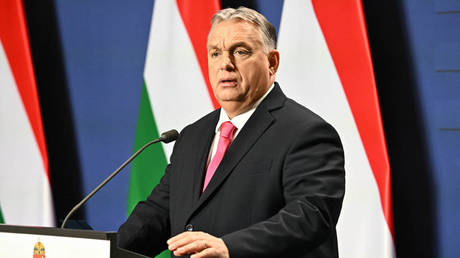ARTICLE AD BOX
Foreign arms shipments have only prolonged the fighting, Hungary’s top diplomat has said
Hungarian Foreign Minister Peter Szijjarto has called for a halt to all Western military aid to Ukraine, saying the massive influx of weapons – as well as Kiev’s reluctance to negotiate – has made peace impossible.
Asked what should be done to achieve a ceasefire in Ukraine in an interview with Austrian news site Exxpress, Szijjarto said ending foreign arms shipments to Kiev is a top priority.
“The more weapons that are supplied, the longer the war lasts. And the longer the war lasts, the more people will die,” the minister continued. “It is obvious that what has been done so far has not been successful. Many weapons were delivered, but the war was only prolonged. A lot of money has been paid to Ukraine, but the destruction of Ukraine continues.”
Read more Brussels ready to offer Orban a deal on Ukraine aid – FT
Brussels ready to offer Orban a deal on Ukraine aid – FT
Pressed on the possibility that Russian troops would “march all the way to Kiev” in the event Ukraine is left “defenseless,” the diplomat said this could only be avoided with negotiations and a renewed peace process.
“This should be prevented by ending the war now. As long as that doesn’t happen, the war threatens to intensify further and more people risk dying. The war should have ended yesterday,” he said.
Szijjarto went on to argue for more dialogue between the warring parties and countries willing to mediate talks, saying “the most important requirement is to keep communication channels open.” He noted that he is often “insulted by many European colleagues, and by Brussels” after meetings with his Russian counterpart, but said “there is no hope at all for peace” without negotiations.
Western sanctions have also failed to “bring the Russian economy to its knees” as intended, the foreign minister said, suggesting the more aggressive approach had backfired and could not bring an end to the fighting.
Read more EU parliament launches ‘historic’ push to sanction Hungary
EU parliament launches ‘historic’ push to sanction Hungary
Budapest is among a small number of EU states that have refused to join the sanctions campaign or provide weapons to Ukrainian forces, opting instead to maintain ties with Moscow. Despite pressure from other members in the bloc, Prime Minister Viktor Orban has declined to approve Brussels’ latest aid package to Kiev, holding up the funds since December.
The Hungarian leader has also threatened to veto Ukraine’s accession to the union, arguing that it poses many risks to the bloc and its economy, as well as the fact that Kiev is still “at war.”
The EU impasse comes at a time when Ukraine’s largest Western backer, the United States, has run out of aid money, as a $61.4 billion spending package remains stalled in Congress. Kiev’s foreign minister, Dmitry Kuleba, has acknowledged his country has no “plan B” should the funds run dry, saying there is no alternative to US largesse.
.png)
 1 year ago
5
1 year ago
5








 English (US)
English (US)